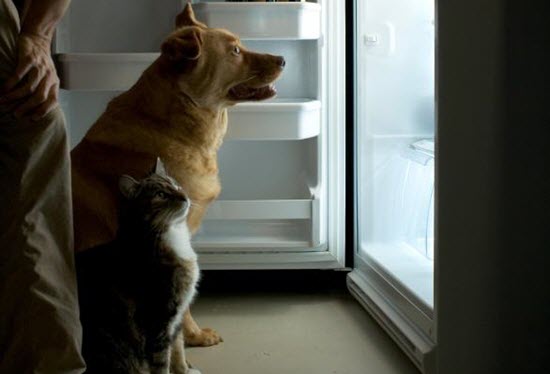
Do you get cravings at night? Are they often for alcohol, or for sugar? Do you have trouble getting to sleep without at least one of them? This post covers a simple plan for handling night cravings.
Foods change brain chemistry (and more, but let”™s stick with brain chemistry for now).
Both alcohol and sugar can change brain chem in a big way — and in almost the same way.
Serotonin is a brain chemical that makes us feel relaxed. It can reduce rotten moods (dysphoria) from depression, SAD (seasonal affective disorder), PMS, anxiety, and more.
At night, we tend naturally to want to increase our serotonin so we can relax.
Serotonin is also the precursor of melatonin, sometimes called the sleep hormone. (Melatonin is important for many reasons, including its anti-inflammatory benefits, but that”™s a separate topic.)
Bottom line, serotonin can help us wind down and get to sleep. It seems logical that, before bed, we”™d want something serotonin-boosting to help us do that.
Alcohol and sugar are frequent options.
Will Alcohol Put You To Sleep?
Alcohol can help you fall asleep. In fact, you might even have started using alcohol as a late-night relaxant because it put you to sleep a few times before. The brain remembers that and will prompt a craving for something that worked in the past when it wants to fall asleep. (It”™s about brain chem, but let”™s keep things simple.)
But if it”™s good sleep you”™re after, alcohol isn”™t the best choice. It will change the quality of your sleep — and not for the better.
Until your body has processed the alcohol completely, you”™ll stay in lighter sleep stages. The full sleep cycle includes light and deep stages. Deeper sleep (theta and delta waves) is the most restorative, so sleep brought on by alcohol might leave you feeling less refreshed than more natural sleep.
Is Sugar Any Better For Sleep?
Late-night cravings for sugar might be prompted for a similar reason to alcohol cravings. Maybe eating something sugary helped you get to sleep on several occasions, so the brain sends signals asking for that same sleep “cure.”
Sugar and alcohol can wake us after a few hours and make it difficult to get back to sleep. This has more to do with low glucose levels than with brain chemistry, but the impact on your night”™s sleep can be severe. In both cases, the effect in the morning may be dramatic and unpleasant.
It”™s easy to be casual about sugar consumption, thinking sugar”™s “just” food. Actually, it”™s a drug with strong effects on brain chemistry and more.
Don”™t underestimate the impact of sugar on your morning-after. One of my clients said that, after eating a lot of sugar at night, she used to wake up feeling “like I”™ve been run over by a truck.” Another client described it as a “sugar hangover.” Both are accurate!
Mixed drinks include alcohol and a mixer that typically contains sugar, so you”™re likely to get all of the above effects — less restful sleep, middle-of-the-night awakenings, and AM hangovers. If so, you may need a better alternative.
What Works Better Than Alcohol or Sugar?
Please keep in mind that the end game is to increase serotonin. Starches will do that, and usually without side effects.
Starches are the foods that most people call “carbs” — even though plenty of other foods are carbs, too. (Vegetables, fruits, and roots, for example, are carbs. Yes.)
Starches include lentils, quinoa, sweet potatoes, rice, potatoes, pumpkin and other squash, beans, bread, and more. And it doesn”™t take a lot to trigger sleep.
A small serving of one of the above starches will help you get to sleep. Just eat it about 60 to 90 minutes before your desired bedtime and let it work for you.
If you feel you need a slightly bigger serotonin boost, try adding a bit of saturated fat to the starch, such as coconut oil or butter. The combination will increase your insulin release and your serotonin production.
If you try this a couple of times and find that it doesn”™t work, haul out the big guns. Have a little turkey with one of the combinations above, making a powerful sleep-inducing trifecta.
Keep your portions small to avoid feeling stuffed or ill as you lie in bed. The goal is just to change brain chem, not to eat an extra meal.
Much more can be said about cravings, and will be in a future post.
- New Year’s Resolutions: A Sugar Addict’s Survival Guide - April 15, 2024
- Motivation vs. Enthusiasm - October 12, 2023
- Why Exercise Shouldn’t Be Just One Thing - November 9, 2022
